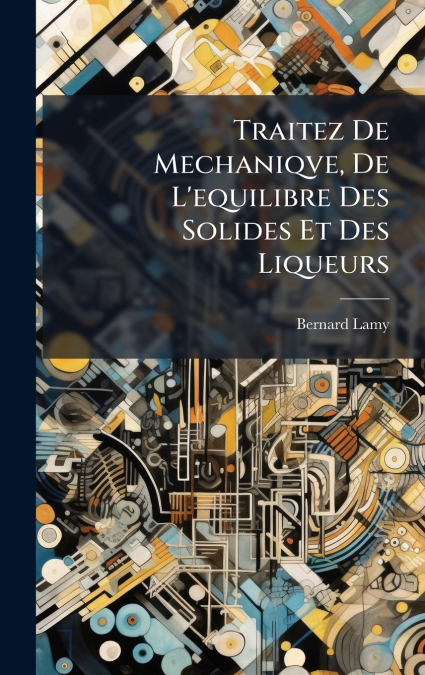
Bernard Lamy
Discover the foundations of mechanical science with Bernard Lamy’s 'Traitez De Mechaniqve, De L’equilibre Des Solides Et Des Liqueurs'. Originally published in 1679, this seminal work explores the equilibrium of solids and liquids, unveiling the underlying principles behind various machines. Lamy meticulously examines the causes and effects of mechanical forces, presenting a unique method for measuring their impact. This edition offers a glimpse into the scientific thought of the 17th century, making it an invaluable resource for historians of science and anyone interested in the evolution of mechanical engineering. Lamy also proposes several novel machines, showcasing his innovative approach to problem-solving. This treatise not only elucidates existing mechanical knowledge but also pushes the boundaries of invention, reflecting a pivotal moment in the history of physics and engineering. A must-read for understanding the early development of mechanical principles.This work has been selected by scholars as being culturally important, and is part of the knowledge base of civilization as we know it. This work was reproduced from the original artifact, and remains as true to the original work as possible. Therefore, you will see the original copyright references, library stamps (as most of these works have been housed in our most important libraries around the world), and other notations in the work.This work is in the public domain in the United States of America, and possibly other nations. Within the United States, you may freely copy and distribute this work, as no entity (individual or corporate) has a copyright on the body of the work.As a reproduction of a historical artifact, this work may contain missing or blurred pages, poor pictures, errant marks, etc. Scholars believe, and we concur, that this work is important enough to be preserved, reproduced, and made generally available to the public. We appreciate your support of the preservation process, and thank you for being an important part of keeping this knowledge alive and relevant.